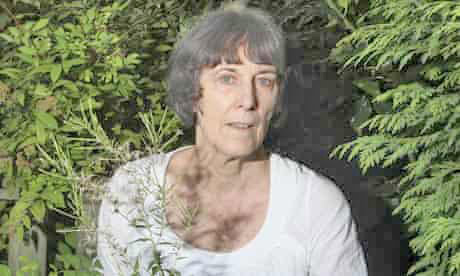February 6, 2019 issue
Authors' & Writers' Corner

Kamil Ali
The coffin stood in the middle of viewing-gallery-four at the rear of the funeral home. Once again, Reuben waited for everyone to leave at midnight before he stepped out from behind a floor-to-ceiling wall curtain. He used the dim lighting to continue sliding the coffin’s lid an inch at a time over the head of the polished wooden box. Reuben stooped to put the leading edge of the cover on the ground and left it leaning against the coffin.
Before he straightened up, his father sat up in the coffin and scanned the room. Reuben ducked when his dad glanced in his direction. The odor of rotting flesh made Reuben gag in the dream and cough himself awake into a sitting position.

For the second night in a row, Reuben took a shower after the strange dream frightened sleep away. He snacked on cookies and milk while he recorded the details in his journal. As he had done on the previous night, he rested his head on the back of his hands on the writing desk in the living room and fell asleep between the half glass of milk and half-eaten cookies in a saucer.
When he awoke a few hours later, the dream sprang into his head and haunted him every minute for the rest of the day. After supper, he forced himself to stay awake with mugs of strong black coffee. Since the dream did not enter his sleep at his desk, he associated the nightmares with his bed. He stretched out on the sofa and watched TV until a few minutes to midnight when he succumbed to exhaustion and faded into sleep. The nightmare continued!
In the land of dreams, Reuben peeked past the edge of the coffin-cover at his dead father. The old man climbed out of the coffin and shuffled to the door. He stopped and glanced behind him as if he sensed another presence in the room. Reuben pulled his head in to avoid detection. His heart raced when the dragging feet on the floor approached the vacated polished box. He scurried to the other side of the casket-stand. The footsteps stopped for a moment at the coffin before starting once more for the door. This time, the clank of a walking cane on the hardwood floor accompanied the foot-dragging. When the sound echoed in the hallway, Reuben dashed to the door in time to catch his father’s entrance into viewing-gallery-three where another dead body lay in an open coffin. Reuben sprinted on tiptoes to the doorway of viewing-gallery-three. The door bore his mother’s name. Reuben’s father leaned over the casket and stroked his wife’s hair with a whimper. She rose into a sitting position and glanced at the door. Reuben’s nose collided with the door frame when he pulled away. The searing pain jerked him awake. He followed the same pattern of actions from the previous night.
The dream unearthed a mystery that troubled Reuben. His father had died at the age of sixty-one from heart failure, and his mother had lived until seventy-seven when she died of cancer. Reuben, now a sixty-four-year-old day-trader who lived on his own, tried to interpret the serial nightmares to find out their meaning. Computer research failed to reveal any clues to his dreams. He took a daytime nap at his desk but did not escape the onset of the nightmare. The phone rang and startled him out of sleep. When he picked it up, he heard the dial tone. He got up and went to his bed, determined to let the dreams play out to the end.
In the dream, Reuben’s mother sat up in her coffin and smiled at her husband. Reuben’s dad held her hand and helped her out of it. They turned toward the door with loving gazes into each other’s eyes. Reuben sprinted back into room four and stared past the door frame to await the emergence of his parents. They entered the hallway with his arm around her shoulder and her arm around his waist. They continued to smile and stare at each other while they steadied themselves with the canes in their free hands, on their way to viewing-gallery-two. When they entered the room, Reuben scampered to the doorway. He gasped in disbelief!
His parents’ canes lay on the floor. They smiled into the open coffin with extended arms. Two hands rose out of the coffin to grasp their open palms. David’s heart pounded, and a cold chill made him shiver. His older sister, who had died in an accident at age thirty-nine, sat up in the coffin. When they helped her out of it, Reuben sprinted back to viewing-gallery-two to hide and observe them in the hallway. Two twenty-year-old lovers with arms wrapped around each other held a newborn in their mutual embrace on their way to viewing-gallery-one. He scurried to the door, but they had vanished!
Reuben opened his eyes and stared at the ceiling. His twenty-four-year-old parents stood over him with his four-year-old sister in his fathers’ arms. They smiled and offered their hands to him. He arose and stretched his arms toward them. His mother cradled him as a newborn in her comforting cuddle. His final family reunion had arrived! Peace embraced him when the family floated away to join their expectant predeceased kinfolk in the hereafter. Reuben had completed his circle of life.

By Romeo Kaseram
Pauline Melville was born in British Guiana in 1948 of mixed European and Amerindian ancestry. Maya Jaggi, interviewing the writer for The Guardian, tells us the ancestry of Melville’s father was “mixed-race Guyanese, part South American Indian, African and Scottish”, while her mother “came from a ‘big working-class family’ in south London”. According to Jaggi, Melville’s parents met in Cuba while her mother was on a break from working on the Canadian railways; her father worked for a sugar factory, and at one time suffered from tuberculosis. In the early 1950s, the family moved to south London, England. Growing up in London had its moments of xenophobia and racism for the young girl, with Jaggi telling us one of Melville’s early recall being “the greyness, and somebody shouting, ‘Your father looks like a monkey.’” In what appears to be possible genealogical evidence of Melville’s Amerindian roots, Jaggi also notes the splenetic, colonialist British author, Evelyn Waugh’s mention in his travel text, Ninety-Two Days, of a “Mr Melville, of white Jamaican-Scottish ancestry, who settled down with two Wapisiana sisters as wives, and had 10 children”.
Melville found work at London’s Royal Court theatre following her early education in the 1960s. As an understudy, she did “everything”, as Jaggi notes, working as an “assistant director, casting, read new plays, swept the stage”. According to Melville, her tenure as an understudy was a “short period of innovation and passion, and I met some of the greatest writers and actors. Unfortunately, I was too young and ignorant to know I was in a pub chatting away to Samuel Beckett”. Later, Melville moved on to a bigger stage on the National Theatre.
Her first film part was in Ulysses (1967); she also landed parts in Far from the Madding Crowd (1967), The Long Good Friday (1980), Britannia Hospital (1982), Scrubbers (1983), White City (1985), and Mona Lisa (1986). In the late-1960s Melville was overcome by a feeling of subsistence, in her word, she felt “uneducated”, and so began attending school, taking courses in psychology and economics at Brunel University from 1970 to 1974. It was a “great period of political education, endless meetings, activism,” she tells Jaggi – this was the time of strikes and protests against Edward Heath’s Conservative government. Jaggi notes Melville was also seeking momentum in overlapping art with politics, and later worked with the Joint Stock Theatre Company, and the Scottish theatre company 7:84, which was known for its direct and grassroots intervention with workers on the factory floor.
Melville’s art with its mix of politics soon took her beyond England’s shores. Following Guyana’s independence in 1966, Jaggi tells us Melville became involved in political movements in the region, including Chile, Jamaica, and Grenada. Melville tells Jaggi Guyana was not part of her worldview growing up as a teenager. In her words, she felt “very English”, adding, “I didn't want to know about Guyana. But gradually, I realised there was another history.” During her flight to Guyana in 1980, the Guyanese historian and pan-Africanist Walter Rodney was assassinated by a car bomb in Georgetown. The murder affected her deeply: “There was great horror and fear. I knew his brother, who was blown up with him.” Following Rodney’s murder, Melville worked at the Jamaican school of drama; she also taught literacy in Maurice Bishop’s New Jewel Movement in Grenada, which ended when the Americans invaded the island in 1983.
She began writing fiction in Jamaica, Jaggi tells us. Says Melville: “My life in the theatre, though I loved it, was never going to allow me to express my background. I looked English; it was a relief to write stories that expressed the other side.” Writing in biography.jrank.org, Geoff Sadler notes Melville’s “cosmopolitan knowledge of both the Old and the New Worlds” and how “her fiction informs her experiences with her own mixed cultural heritage, Western philosophy nudging shoulders with Amerindian creation myths and the resulting blend touched with a sardonic, iconoclastic wit”. It is from this foundation of her Guyanese origins where she shaped her debut collection, Shape-Shifter (1990), which was praised by the author, Salman Rushdie, as “A notably sharp, funny and original first collection of stories, part Caribbean magic, part London grime, written in a slippery, chameleon language that is a frequent delight”; he adds, “I believe her to be one of the few genuinely original writers to emerge in recent years.”
Sadler notes Shape-Shifter’s stories describes “the experiences of [Melville’s] various exiles and misfits in a highly individual way”. Says Sadler: “Her title reflects not only the metamorphoses of her characters, but the constant switching of time frames, narrative styles, and devices by which they are presented. As so often in Melville’s fiction, the real and surreal blend seamlessly into one, the everyday world of Western notional ‘reality’ overtaken by an eerie dream (or nightmare) universe in which the limbs and souls of her creations take on new and disturbing life. Throughout the collection, Melville impresses with her wry, detached humor and her impatience with the sacred cows of literature and philosophy.”
John Thieme, writing in the Routledge Encyclopedia of Post-Colonial Literatures in English, tells us Shape-Shifter “immediately established her reputation as a writer of fiction, who combined fabulist techniques with probing social commentary in a uniquely individualistic way”. He adds: “Melville has been termed a ‘magic realist’, but such a classification obscures the range of her polyphonic variety of fictional voices. Shape-Shifter moves between coastal Guyana and contemporary London, where she mainly deals with the situation of migrants and those living on the margins of society. The Guyanese stories ask questions about the potency of magic and superstition, while also foregrounding contemporary political corruption. Initially, the London stories seem to be written in a realistic mode. However, they become increasingly surrealistic and, in pieces such as ‘The Truth is in the Clothes’ and ‘You Left the Door Open’, the magical and the mundane intersect in shape-shifting fictional forms suited to the transformations of identity they depict.”
Also in her bibliography are The Ventriloquist’s Tale (1997); The Migration of Ghosts (1998); and, Eating Air (2009). Among her awards are the 1990 Commonwealth Writers’ Prize (Overall Winner, Best First Book), the 1990 Guardian Fiction Prize, and the 1991 PEN/Macmillan Silver Pen Award for Shape-Shifter. In 1997 she won the Whitbread First Novel Award for The Ventriloquist's Tale; she also made the shortlist for the 1998 Orange Prize for Fiction, for The Ventriloquist’s Tale; also in 1998, she won the Guyana Prize for Literature, again for The Ventriloquist’s Tale. Melville is based in London, England.
Sources for this exploration: Routledge Encyclopedia of Post-Colonial Literatures in English; http://biography.jrank.org/pages/4589/Melville-Pauline.html; Wikipedia, and The Guardian.